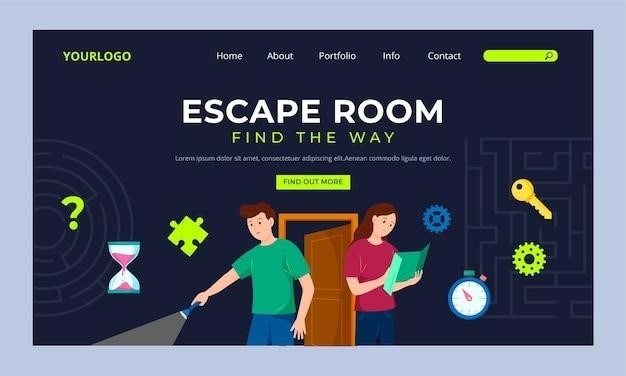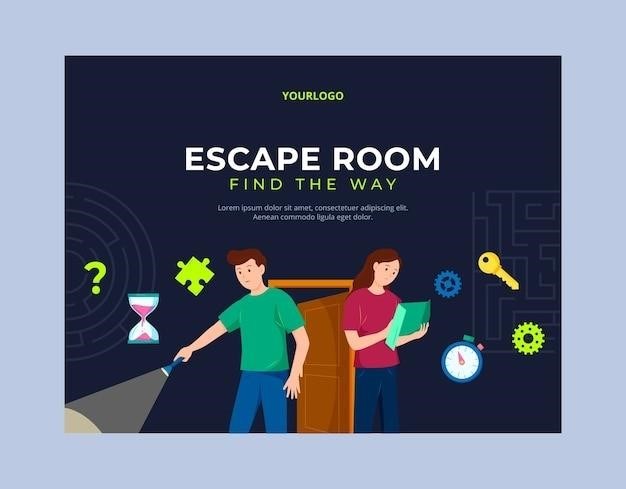Tunnel Engineer Interview Questions and Answers⁚ A Comprehensive Guide
This guide provides a comprehensive overview of interview questions and answers for tunnel engineers. Explore common questions about experience, project management, technical skills, and safety protocols. Access additional resources and insights to excel in your interview and secure your dream role. Prepare for both technical and behavioral questions to showcase your expertise and passion for tunnel engineering. Gain a competitive edge by understanding the interviewer’s perspective and demonstrating your problem-solving abilities. This guide is your key to success. Downloadable PDF resources are also available online.
Top Interview Questions for Tunnel Engineers
Expect inquiries about your experience with various tunneling methods (TBM, NATM), your proficiency in relevant software (AutoCAD, PLAXIS, RockWorks, TunnelMagic), and your approach to project management and budgeting. Be prepared to discuss specific projects, highlighting your contributions and problem-solving skills. Interviewers will assess your understanding of safety protocols and your ability to manage risks effectively. Questions regarding your experience with geotechnical surveys, ground behavior analysis (including unexpected groundwater inflow or unstable soil conditions), and environmental impact assessments are also common. Demonstrate your knowledge of sustainable practices and your ability to collaborate effectively within a multidisciplinary team. Prepare detailed answers showcasing both technical expertise and leadership qualities. Finally, be ready to articulate your passion for tunnel engineering and your long-term career goals within the field. Thorough preparation will increase your confidence and improve your performance in the interview.
Commonly Asked Questions and Effective Answers
Prepare for questions about your strengths and weaknesses, focusing on specific examples from your experience. Highlight your problem-solving abilities by describing situations where you overcame unexpected challenges, such as unstable ground conditions or equipment malfunctions. Quantify your achievements whenever possible, using metrics to demonstrate your impact on past projects. For example, mention percentage improvements in efficiency or cost savings. When discussing teamwork, provide specific examples of successful collaborations and your role in resolving conflicts. Be ready to explain your approach to project management, emphasizing your ability to manage budgets, timelines, and resources effectively. Practice articulating your understanding of safety protocols and your commitment to maintaining a safe working environment. Prepare answers that showcase your knowledge of relevant regulations and industry best practices. Remember to tailor your responses to the specific requirements of the job description and the company’s values. Focus on demonstrating your passion for tunnel engineering and your enthusiasm for the opportunity.
Preparing for Behavioral Interview Questions
Behavioral interview questions assess how you’ve handled past situations. Use the STAR method (Situation, Task, Action, Result) to structure your answers. For each question, describe a relevant situation, the task you faced, the actions you took, and the positive results you achieved. Practice beforehand by anticipating common behavioral questions like “Tell me about a time you failed,” or “Describe a challenging project and how you overcame obstacles.” Prepare examples showcasing your teamwork, problem-solving, leadership, and communication skills. Focus on situations that highlight your ability to adapt to changing circumstances, manage conflict, and work effectively under pressure. Demonstrate your initiative and proactive approach to problem-solving. Highlight instances where you went above and beyond to achieve project goals. Remember to remain positive and focus on lessons learned from both successes and failures. Show your ability to learn from mistakes and apply that knowledge to future projects. Practice your delivery to ensure clear and concise responses.
Technical Questions and Their Solutions
Expect technical questions assessing your knowledge of tunneling methods (TBM, NATM), ground investigation techniques (borehole drilling, geophysical testing), and software proficiency (AutoCAD, PLAXIS, TunnelMagic). Prepare to discuss your experience with different tunneling approaches, explaining when each method is most appropriate. Be ready to explain your understanding of geotechnical engineering principles, including ground behavior modeling and risk assessment. Showcase your ability to analyze geological data and adapt construction methods to unexpected conditions. Demonstrate your knowledge of safety protocols and regulations within the tunneling industry. Practice explaining your experience with project management software, budget tracking, and schedule adherence. Prepare to discuss your familiarity with environmental regulations and mitigation strategies. Prepare examples illustrating your problem-solving skills in complex technical situations. Highlight your understanding of structural design and analysis within a tunneling context. Discuss your experience with various types of tunnel support systems and their applications. Show your understanding of groundwater control techniques and their importance in tunneling projects. Be ready to answer questions about your experience with different types of machinery used in tunneling operations.
Questions on Project Management and Budgeting
Interviewers will assess your project management skills and experience in handling tunnel engineering projects within budget and schedule constraints. Prepare to discuss your experience using project management software to track progress, costs, and resources. Be ready to describe your methods for developing and managing project budgets, including contingency planning for unforeseen expenses. Showcase your ability to identify and mitigate potential risks that could impact project timelines or budgets. Explain your approach to stakeholder management and communication, including regular reporting and updates. Provide specific examples of how you have successfully managed complex projects, highlighting your leadership and problem-solving abilities. Discuss your experience in managing teams, including assigning tasks, coordinating efforts, and resolving conflicts. Be prepared to discuss your experience with change management within a project environment. Explain how you have handled unexpected challenges or delays, and what strategies you used to keep projects on track. Highlight your knowledge of different project management methodologies (e.g., Agile, Waterfall) and your ability to adapt your approach based on project needs. Prepare to answer questions about your experience with procurement processes and contract management in tunneling projects. Demonstrate your understanding of cost-control measures and your ability to optimize resource allocation for maximum efficiency.

Navigating the Tunnel Engineering Interview Process
This section offers guidance on successfully navigating the interview process for tunnel engineering roles; Understand the interviewer’s perspective, highlight your skills, showcase your passion, and address potential challenges effectively. Demonstrate your problem-solving abilities with real-world examples from your experience. Prepare for a comprehensive and insightful interview.
Understanding the Interviewer’s Perspective
Before you even begin crafting your answers, it’s crucial to understand what the interviewer is looking for. They aren’t just assessing your technical skills; they’re evaluating your overall suitability for the role and the team. This means understanding their priorities – are they focused on project delivery, cost management, safety, or innovation? Researching the company and the specific project beforehand will give you valuable insights into their priorities and allow you to tailor your responses accordingly. Consider what challenges the company might be facing and how your skills and experience can directly address them. Demonstrate a clear understanding of the industry’s current trends and challenges, showing that you’re not just applying for a job but actively engaging with the field’s evolution. By anticipating their needs and demonstrating a proactive approach, you significantly increase your chances of making a strong impression. Remember, they are investing in a person who will not only complete tasks but also contribute to the team’s overall success and growth.
Highlighting Relevant Skills and Experience
Effectively showcasing your skills and experience is paramount. Don’t simply list your accomplishments; instead, weave compelling narratives that demonstrate your capabilities. Use the STAR method (Situation, Task, Action, Result) to structure your answers, providing concrete examples of how you’ve successfully tackled challenges in past projects. Quantify your achievements whenever possible, using metrics to illustrate your impact. For instance, instead of saying “I improved safety,” say “I implemented a new safety protocol that reduced incidents by 20%.” Focus on skills directly relevant to the job description, such as experience with specific tunneling methods (TBM, NATM), software proficiency (AutoCAD, PLAXIS, TunnelMagic), and project management expertise. Highlight your ability to manage budgets, timelines, and teams effectively. Showcase your problem-solving abilities by describing how you’ve overcome unexpected challenges, such as geological issues or equipment malfunctions. Remember, the goal is to paint a picture of a highly competent and results-oriented professional ready to contribute immediately and significantly.
Presenting Your Passion for Tunnel Engineering
Demonstrating genuine enthusiasm for tunnel engineering is crucial. Interviewers want to see that you’re not just looking for a job, but a career in a field you’re truly passionate about. Share your personal story – what sparked your interest in this specialized area of civil engineering? Did a particular project inspire you? Perhaps you’ve always been fascinated by the complexity of underground construction or the societal impact of efficient transportation networks. Mention specific aspects of tunnel engineering that excite you – the technical challenges, the problem-solving opportunities, or the contribution to infrastructure development. Connect your passion to your skills and experience, showing how your drive fuels your dedication to excellence. Enthusiasm is contagious; let your genuine interest shine through your responses, making a lasting impression on the interviewer. Authenticity is key – don’t try to force it; let your passion speak for itself.
Addressing Potential Challenges and Obstacles
Interviewers will assess your ability to handle unexpected situations. Prepare for questions about how you’ve overcome past challenges in projects. Focus on situations requiring problem-solving, resourcefulness, and adaptability. For example, discuss instances where you encountered unexpected geological conditions, budget constraints, or scheduling conflicts. Explain your approach – how did you analyze the problem, identify solutions, and collaborate with your team? Highlight your ability to remain calm under pressure and make informed decisions. Quantify your successes whenever possible. Did you manage to reduce costs, mitigate risks, or complete the project on time despite obstacles? Showcase your proactive nature; demonstrate how you anticipate potential issues and develop preventative strategies; Emphasize your resilience and your commitment to finding creative solutions even in challenging circumstances. The goal is to show you are not only capable but also resourceful and persistent in the face of adversity.
Demonstrating Your Problem-Solving Abilities
Highlight your analytical skills and structured approach to problem-solving. Use the STAR method (Situation, Task, Action, Result) to describe past experiences where you successfully resolved complex engineering challenges. For example, detail a situation where you had to troubleshoot a technical issue during a tunnel project. Explain the specific task you faced, the actions you took to diagnose the problem, and the ultimate results of your efforts. Did you improve efficiency, enhance safety, or reduce costs? Quantify your accomplishments whenever possible using metrics and data. Show your ability to think critically and creatively by discussing situations where you needed to develop innovative solutions. Did you use new technologies, adapt existing methods, or collaborate with other disciplines to overcome obstacles? Demonstrate your understanding of geotechnical engineering principles by explaining how you’ve addressed issues related to ground stability, water inflow, or other geological challenges. Showcase your ability to make informed decisions by considering various factors, including safety, budget, and schedule. The key is to illustrate your systematic and effective problem-solving approach.

Resources for Further Preparation
To enhance your interview preparation, explore various online resources. Numerous websites offer sample interview questions and answers specifically tailored for tunnel engineers. Leverage these resources to familiarize yourself with common questions and practice formulating concise and effective responses. Consider searching for “tunnel engineer interview questions and answers PDF” to find downloadable guides that you can review offline. Professional networking sites like LinkedIn can provide valuable insights into the industry and the expectations of potential employers. Look for articles and discussions related to tunnel engineering projects and the challenges faced by professionals in the field. Review relevant industry publications and journals for updates on best practices and current technologies. Strengthen your understanding of geotechnical engineering and tunneling methods by referring to textbooks and online courses. Practice your technical skills and familiarize yourself with industry-standard software used in tunnel design and analysis; Remember, thorough preparation is key to succeeding in your interview. By utilizing these resources, you will significantly improve your chances of making a strong impression and securing your desired position.